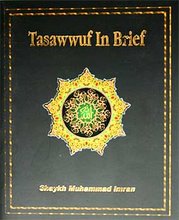بسم الله الرحمن الرحيم الحمد لله رب العالمين والصلوة والسلام على سيدنا محمد رسوله الرؤوف الرحيم
Abdullah bin Zam`ah (May Allah be pleased with him) reported that he heard the Prophet (PBUH) giving a speech when he mentioned the she-camel (of Prophet Salih) and the man who had killed her. Messenger of Allah (PBUH) said: "when the most wicked man among them went forth (to kill the she-camel).' (91:12) signifies that a distinguished, wicked and most powerful chief of the people jumped up to kill the she-camel.'' Then he (PBUH) made mention of women and said, "Some of you beat your wives as if they were slaves, and then lie with them at the end of the day." Then he (PBUH) admonished them against laughing at another's passing of wind, saying, "Why does any of you laugh at another doing what he does himself."[Al-Bukhari and Muslim].
Abdullah bin Zam`ah (May Allah be pleased with him) reported that he heard the Prophet (PBUH) giving a speech when he mentioned the she-camel (of Prophet Salih) and the man who had killed her. Messenger of Allah (PBUH) said: "when the most wicked man among them went forth (to kill the she-camel).' (91:12) signifies that a distinguished, wicked and most powerful chief of the people jumped up to kill the she-camel.'' Then he (PBUH) made mention of women and said, "Some of you beat your wives as if they were slaves, and then lie with them at the end of the day." Then he (PBUH) admonished them against laughing at another's passing of wind, saying, "Why does any of you laugh at another doing what he does himself."[Al-Bukhari and Muslim].
Continuing from last week’s lesson, we come to the next hadith which Imaam al-Nawawi has brought under the chapter headed: "recommendations with regard to women." In this hadith, the narrator has made mention of three things that The Messenger of Allah, sallallahu alaihi wasallam, admonished the people regarding. Our focus is on the second phrase: "Some of you beat your wives as if they were slaves, and then lie with them at the end of the day."
The Messenger of Allah, throughout his blessed life, ordered kindness and compassion with all, whether it is humans or even animals. Hence, the companions once asked: "Shall we be rewarded for showing kindness to the animals also?'' He, sallallahu alaihi wasallam, said, "A reward is given in connection with every living creature."[Al-Bukhari and Muslim].
This is one of many such examples which show the emphasis he placed upon goodness and kindness to all creatures. Let alone one’s wife!
Abu Hurairah (May Allah be pleased with him) reported: Messenger of Allah, sallallahu alaihi wasallam, said, "A believer must not hate a believing woman (his wife); if he dislikes one of her characteristics he will be pleased with another".[Muslim].
This is the next hadith in this chapter. In this narration we find a beautiful principle for a happy married life. Here, the Messenger of Allah, sallallahu alaihi wasallam, acknowledges the fact that everyone has shortcomings and if one was to take his wife to task for her every fault; the joy of their married life would almost definitely be short-lived.
It is up to each individual to ensure that he overlooks the minor faults of the other, which will naturally become apparent. One must endure, show patience and forgive the shortcomings and thereafter, as our beloved Master advised, he should look at and concentrate upon the good qualities and favors of the spouse.
Islam acknowledges that a man can not remain in a constant state of happiness. But Islam also teaches ways of handling such situations, for example, walking away from a heated situation and praying to Allah for help, and thereafter returning to one’s spouse with a loving smile.
In such a situation where one comes to know of a fault of the spouse, one should immediately take his attention to her better qualities and he will realize that she possesses many. As the Messenger of Allah, sallallahu alaihi wasallam, said, "People are mines." This is in reference to the different materials that can be extracted from mines, and they are only discovered through searching into them. Hence, if one wants to, he will find many good and pleasing qualities in his spouse. On the other hand, if one expects his spouse to be perfect and always saying and doing only those things which comply with his desires, he is heading for a life of misery and discomfort.
"Even a stopped clock is right twice a day."
Shaykh Ashraf Ali Thanwi mentioned that there was once a pious scholar whose wife passed away. His children tried to persuade him not to wed again, claiming that they would suffice and serve him. However, he knew better, and hence, he married again. Some time later, he fell ill, and no one of his children was there to serve him as his new wife did. She stayed by his side and ran to his every need. One day, when he was back to good health, he was teaching his students when suddenly he received the news that his wife was ill. Immediately, he stood up and rushed to her side, sending his students away. People began taunting him but he would not care and he would say, "What my wife has done for me, no one could ever do."
This is a good example of how our pious predecessors gave importance to their marriages and keeping them in a way that conforms to the teachings of our beloved Messenger.
The husband should have a sense of humour to cheer his wife, sooth her pains and show his noble character because this will strengthen the bonds of love and respect between them.
واخر دعوانا ان الحمد لله رب العالمين وبالله التوفيق والعون فإنه هو الموفق والمعين




No comments:
Post a Comment